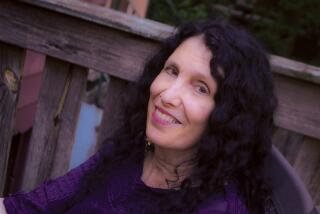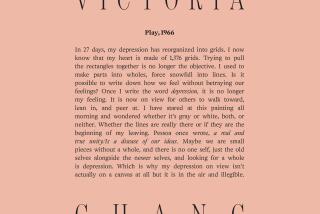‘Look, baby, I’m sorry...’ Charles Bukowski and his inspiration
Charles Bukowski, a kind of poet laureate of the seedy side of Los Angeles, wrote of life on its margins, at its racetracks, in its rundown bars. Bukowski was a poet and a novelist; in his novels, his alter ego Henry Chinaski made all kinds of bad decisions. But even while desperate, there was something appealing about Chinaski’s desire to make something out of his beaten-down life. As in this passage:
“After dinner or lunch or whatever it was -- with my crazy 12-hour night I was no longer sure what was what -- I said, ‘Look, baby, I’m sorry, but don’t you realize that this job is driving me crazy? Look, let’s give it up. Let’s just lay around and make love and take walks and talk a little. Let’s go to the zoo. Let’s look at animals. Let’s drive down and look at the ocean. It’s only 45 minutes. Let’s play games in the arcades. Let’s go to the races, the Art Museum, the boxing matches. Let’s have friends. Let’s laugh. This kind of life like everybody else’s kind of life: it’s killing us.’ ”
That passage appears in our interactive map of Literary Los Angeles. In it you can see where Chinaski/Bukowski was working, and learn the title of the book where the passage can be found.
Bukowski spent much of his life as an outsider, with his books being published by the small independent house Black Sparrow Press. Bukowski once wrote to Black Sparrow’s publisher, John Martin, “what hurts is the steadily diminishing humanity of those fighting to hold jobs they don’t want but fear the alternative worse. People simply empty out. They are bodies with fearful and obedient minds. The color leaves the eye. The voice becomes ugly. And the body. The hair. The fingernails. The shoes. Everything does.”
But his reputation grew, and in his last decades, he was recognized as a significant writer. His archive is now at the Huntington Museum and Library, part of which was put on display in the exhibit “Poet on the Edge.”
Our literary map is a work in progress. What poets -- on the edge or not --do you think should be included in it in the future?
ALSO:
Charles Bukowski at the Huntington
Adam Johnson wins the Pulitzer Prize in fiction for 2013
Chris Columbus and Ned Vizzini open up about ‘House of Secrets’
Carolyn Kellogg: Join me on Twitter, Facebook and Google+
More to Read
Sign up for our Book Club newsletter
Get the latest news, events and more from the Los Angeles Times Book Club, and help us get L.A. reading and talking.
You may occasionally receive promotional content from the Los Angeles Times.







